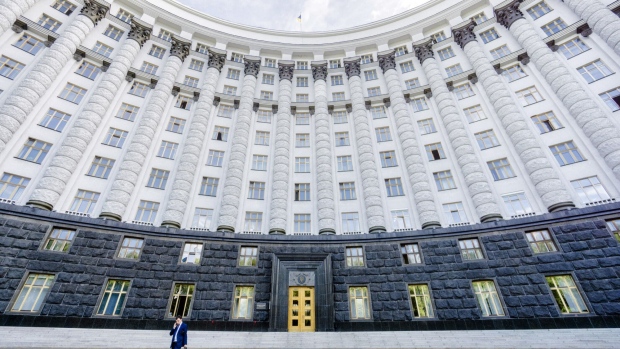Jun 29, 2024
IMF Adds Customs Code Reforms to Ukraine’s Program Requirements
, Bloomberg News

(Bloomberg) -- The International Monetary Fund will add a requirement for Ukraine to implement changes to its customs code in a bid to step up a crackdown on corruption.
Kyiv will need to align its customs operations with European Union legislation, strengthen personnel integrity, and introduce a merit-based and transparent hiring process for staff, according to a memo from the Washington-based lender published on Saturday.
That includes a leadership selection process with integrity checks and the meaningful participation of experts with international experience, to be in place by the end of October.
Ukraine must show progress in fighting corruption - which has eroded its economy since the country got independence in 1991 - to keep billions of dollars in international financial aid flowing as the country battles Russia’s full-scale invasion for a third year.
Effective efforts at cracking down on graft are also required for Ukraine’s potential entry into the European Union and NATO.
The IMF’s memorandum additionally envisages a first-ever external audit of the Ukrainian National Anti-Corruption Bureau, known as NABU, by independent auditors picked by international partners by the end of September.
“The external audit of NABU should be completed promptly, and its results leveraged to enhance the bureau’s accountability and operational effectiveness,” the IMF said.
Other measures for Kyiv government to implement include:
- Strengthening the criminal procedural code, creating a new high administrative court.
- Near-term tax policy measures that must focus on raising revenues from excises, further alignment with the EU acquis - or common rights and obligations - and streamlining tax privileges as the country needs to increase budget revenue.
- “The 2025 budget will require implementing measures to mobilize domestic revenue to help meet still-high expenditure needs, strengthen tax administration, including on customs and compliance, and advance reforms on medium-term budgeting and public investment management,” the IMF said.
- Cautious liberalization of FX controls should continue to allow Ukraine’s exchange rate to adjust and absorb domestic and external shocks that help support external stability.
- The IMF sees scope for further monetary policy easing, given “still high real interest rates.”
- The lender raised its requirement for Ukraine’s central bank to keep net reserves, to $28.8 billion from $27.9 billion by the end of September. That suggests the central bank may have less room to maneuver on interventions to support the hryvnia.
The IMF executive board approved the release of $2.2 billion from Ukraine’s $15.6 billion aid package on Friday after its mission assessed Kyiv policies. The next review of Ukrainian policies, the fifth, is scheduled for September.
©2024 Bloomberg L.P.






